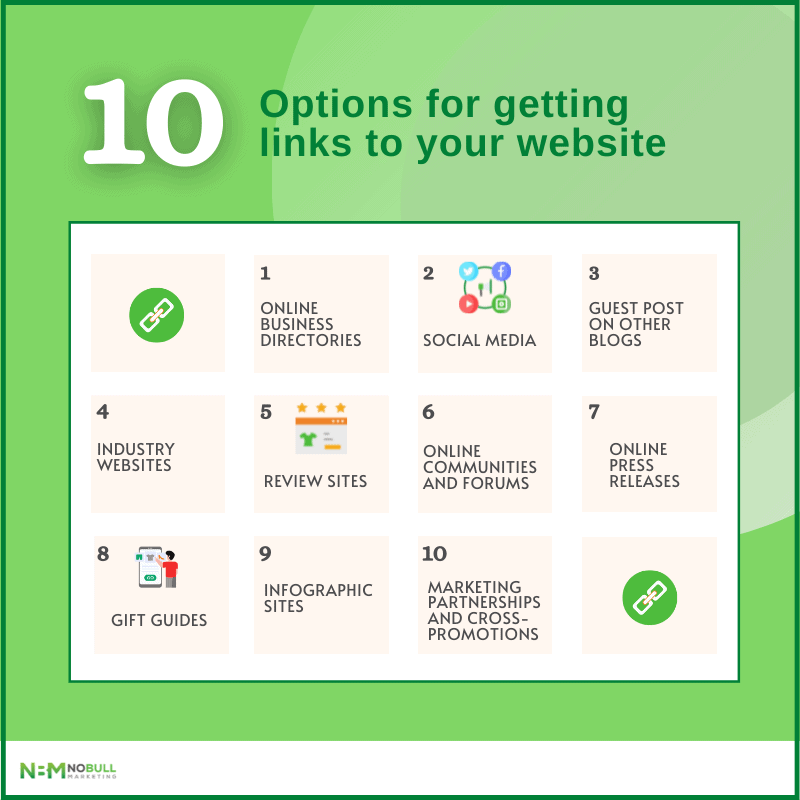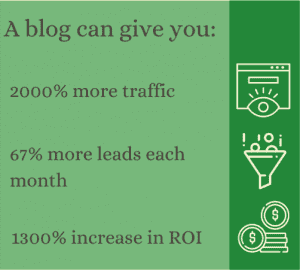Content marketing can look and sound really overwhelming. There are specialist agencies. Conferences. Even a Content Marketing Institute. You might think it’s just for corporates and multinationals who have the manpower and the big bucks.
But in truth, good content marketing is one way smaller businesses can compete with smarts not dollars. Today we’re going to look at the basics – getting started with content marketing when you don’t have a 6 figure budget or more to back you up. Heck, you might even be able to do this without a 5-figure budget!
The golden rule is to start small.
You don’t have to do everything at once. Work on your content marketing one bit at a time and you’ll be amazed how much you can get through. It’s the same way you eat an elephant. Or a giant pizza!

So, if you’re not going to do everything at once, where do you start. Here are my top three recommendations:
1. Get yourself a lead magnet
A lead magnet is any piece of content which converts visitors to your site into leads. Essentially, you capture contact details so you can communicate with these people again. Think of it as asking for a business card – except that far more people will say no, which is why you need to design a lead magnet which actually works! Something easy, useful and enticing for your potential clients.
An effective lead magnet is a great way to convert far more visitors. But you still need to get visitors to your site somehow. My next two tips are designed to increase your total site traffic.
2. Run a blog – regularly
I’m not the only one who says this, by the way. The research shows that a blog can give you
Sounds great, doesn’t it? Of course there are some catches.
Not everyone will get these results. It depends on the quality of your blog, how well it’s focused on your target market and how well you promote it. (Content marketing requires marketing as well as content! Our content promotion checklist can help you with that.)
Pretty much no one will get these results straight away. One swallow doesn’t make a summer. One blog post doesn’t make a blog, let alone a successful one.
But a blog is the single thing you can do which is most likely to
- lift your site higher in Google rankings, and
- demonstrate your knowledge and expertise effectively to site visitors.
You can run your blog by yourself. Lots of businesses do. If you opt for this, you’ll need a level of expertise in writing and on-page SEO. You’ll have to be happy with the backend of your website and with promoting on various channels. Or you can outsource the whole thing – preferably using a blogging service like ours which ensures you get authentic real-life examples and stories from your business.
However you choose to manage your blog, make sure you prioritise quality over quantity. You don’t need to publish every day, or every week. If you’re busy, bang out three posts, then add one every month. As long as they’re good posts, that will be plenty.
3. Build profile and links for your site elsewhere on the web
Links from other sites on the web do two things for your content marketing:
- they build your ranking in search results
- they bring traffic to your site
The right links can also raise your profile and expertise in a wider community. Think of it this way:
- Publishing content on your site (your blog) is like presenting at an event for your existing customers and contacts
- Publishing content on someone else’s site (guest posting) is like speaking at someone else’s event – to their customers and contacts.
- Commenting on articles on other sites is like asking a question or making a point at an event you attend. It gets you notice. Not as much as the presenter, but still some.
How do you get links to your site and your content marketing?
One of the easiest ways to get links from other sites is via your social media platforms. Promote every blog post you publish on social media. That’s one reason we provide social media posts with all our blogging services.
Not all links are created equal, though. Since most people promote their blog posts on their socials, Google considers these links less impressive than a guest post on a respected industry blog or website. There are also a range of other options such as press releases, discussion forums and community groups, industry networks, supplier and customer sites which you can consider.

Many content marketing experts will advise you to start by focusing on off-site content, especially guest blogs. This is great in theory, but there are some issues in practice.
Your lead magnet and your blog are completely under your control. You can publish when you want to, and amend when you want to. When it comes to off-site content, you have much less control! You can spend ages contacting people and proposing that you write a guest blog. They may or may not agree. It can be disheartening, which doesn’t help when you’re just getting started with content marketing. You’d rather have at least some result.
Another thing to realise is that people you approach may check out your site and your blog to see what your guest post might look like. If you don’t have your own blog up and running, that’s a problem!
A gradual approach often works better. Build your own blog. At the same time, read other related blogs. Comment where you can. On blogs, on social media posts, on industry sites. Join in the conversation before you try to lead it. You could even ask to interview some people for a post on your blog.
Are you ready to get started with content marketing?
You can see from this that getting started with content marketing boils down to three things:
- A lead magnet. This is a one-off investment. (At this point, anyway. You can always add more later, but it’s optional.)
- A blog. Even if you post just once a month.
- Some online networking, commenting and connecting – which you should be doing anyway. The only difference is that you have an objective of getting noticed.
Does that sound manageable? I hope so.
Just remember, the key is not quantity. It’s consistency. Start small. Start slow. But keep going.
Good luck!







